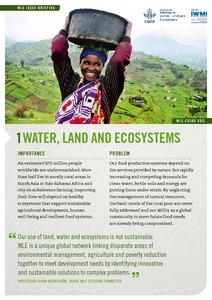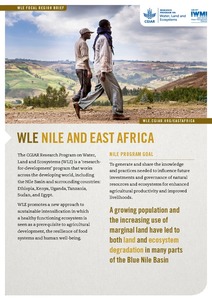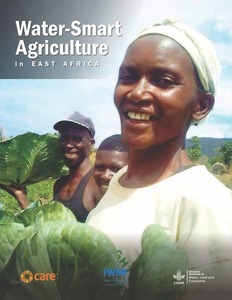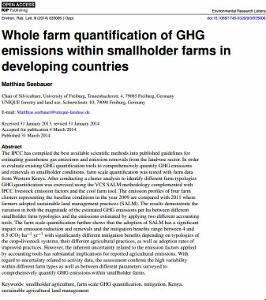Water, livelihoods and environment in India: frontline issues in water and land management and policy. 2nd IWMI-Tata Annual Partner's Meet Report
Wetlands of the Nile Basin: distribution, functions and contribution to livelihoods.
Wetlands occur extensively across the Nile Basin and support the livelihoods ofmillions of people. Despite their importance, there are big gaps in the knowledge about the current status of these ecosystems, and how populations in the Nile use them. A better understanding is needed on the ecosystem services provided by the difl:erent types of wetlands in the Nile, and how these contribute to local livelihoods.
WLE NILE and East Africa
What determines contribution to a common fund for upkeep of water infrastructures? Evidence from experimental game in Coastal Bangladesh
This interactive poster was presented at the 2013 Stockholm World Water Week. It describes the results of a 'public good game' carried out with farmers in the polder zones of coastal Bangladesh in order to understand determinants of contributions to maintain a public good.
What do criteria and indicators assess?: an analysis of five C&I sets relevant for forest management in the Brazilian Amazon
The diversity of C&I sets is often a cause for uncertainty and confusion, and probably one of the reasons for the still unsatisfactory acceptance of C&I as a support for implementation of sustainable forest management so far. In order to halt this erosion of confidence in C&I the presented paper evaluated the diversity of five C&I sets (CIFOR, ACM, FSC, ITTO and Tarapoto) relevant for the Brazilian Amazon by analyzing frequencies of C&I in relation to parameters about content and quality.
Working Paper on Population Growth and Natural Resource Pressures in Pursat Catchment
This project examined the linkages between population and demand for food and water. Cambodia, in general, and Pursat Province in particular, have a complex and interesting mosaic of demographic attributes and development issues. The Tonle Sap basin and Pursat catchment possess the country’s largest potential water resources.
Whole farm quantification of GHG emissions within smallholder farms in developing countries
The IPCC has compiled the best available scientific methods into published guidelines for
estimating greenhouse gas emissions and emission removals from the land-use sector. In order
to evaluate existing GHG quantification tools to comprehensively quantify GHG emissions
and removals in smallholder conditions, farm scale quantification was tested with farm data
from Western Kenya. After conducting a cluster analysis to identify different farm typologies
GHG quantification was exercised using the VCS SALM methodology complemented with








